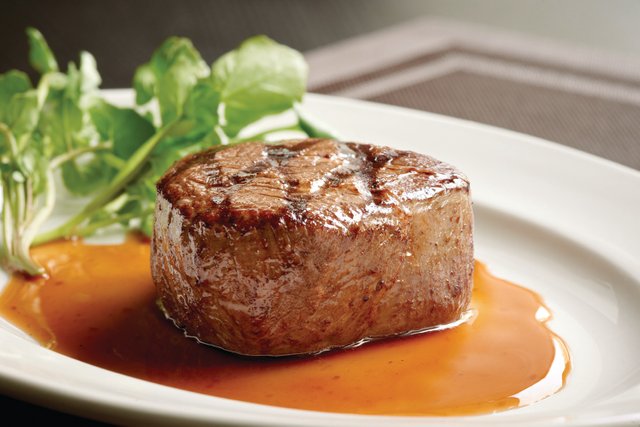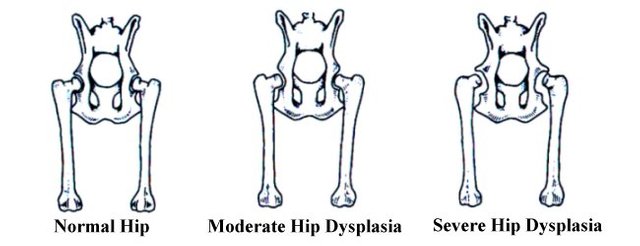In defence of meat: Reflections on society, ethics, experience, and current scientific knowledge – Part I
A few weeks ago, I had the opportunity of attending an international bovine veterinarian conference. Most of the sessions were very science-based, touching on issues like nutrition, immunology, and disease prevention. However, there also was a lot of talk about animal welfare, and how society in general is becoming increasingly critical about livestock farming.
As a vet student interested in caring for food animals, this criticism is nothing new for me. While I agree that there are some practices that look bad because they are bad (like castration without pain control), I am always surprised to see the double standards applied to pet ownership and livestock production.
While we see increasing opposition to battery cages for laying hens and increasing demand for dairy cattle to graze, society is largely silent on the subject of keeping working breed dogs in small appartments with only a few hours of human contact per day. Sure, farrowing crates for sows don't allow for much movement and don't permit the whole gamut of pig behaviours . But then again, what is "natural" about keeping a golden retriever in a cement anthill miles away from a body of water? Even a fenced-in suburban backyard and leash walks are light-years away from the environment that breeds like huskies and collies were designed to live and work in.
The same double standard plagues discussions on genetics. While farm animal breeding often comes under fire for selecting heavily for production traits, I rarely hear the general public ask why we are still breeding german shepherds with sloping hips or brachycephalic breeds (the ones with smushed-in faces). It's safe to say that any farmer would give you a strange look if you suggested their cows should have a leg structure that makes them go lame simply because it's more "aesthetic" or a nose so flat they can't breathe properly (without surgery) because it's "cute". Sure, veterinarians recognize the risks involved with this kind of breeding. Yet I hear many more laypeople saying it's "gross" to select cows for milk production, than I hear people condemning extreme forms of conformation in dogs that often end up harming them.
What has brought about this situation? For one, less than 2% of Canadians and Americans are involved in primary agriculture. Livestock production isn't criticized because it is gross, immoral, abnormal or shocking. It is criticized more than many other animal-related industries because it is much more foreign to the average person. As I have stated previously, some practices look bad because they are bad. However, given the divide between urban and rural realities in the 21st century, any farming practice, whether good or bad for the animal, has the potential to be shocking, simply because it's so foreign to the uninitiated.
The same thing goes for animal research – even though research protocols have to go through committee upon committee for approval, to ensure the well-being of the animals involved, animal rights groups still manage to portray scientists as neanderthal-like vivisectionists. Yet again, the scientific community is so small, and their work so foreign to the average person on the streets, that fear of the unknown, rather than solid facts, end up carrying the day.
Raising animals for food production has been happening for thousands of years, and they have been experiencing stress in the process for thousands of years. A sheep grazing in the Levant, without shade, some 2,000 years ago, would be experiencing stress, even though Monsanto and company were not yet around to (supposedly) murder us all in our sleep. After all, the only way to avoid stress entirely is to be dead.
It shouldn't be shocking, or news to anyone, that animals are being raised for food and experiencing some level of stress or another in the process. What is shocking, however, is that for the first time in millenia, the vast majority of our population has no direct connection to, even less less solid knowledge of, the one economic sector which actually allows them to survive. I believe the rural-urban divide of 21st century society largely explains why meat appears to be so "gross" to so many.
Furthermore, the problem is compounded by the nostalgia surrounding agriculture, with many insisting that animals are sicker than they used to be because of stress and "artificial" environments. We long for the days when cattle grazed peacefully on pasture and weren't "subjected" to "massive" doses of antibiotics. But the same people also forget that these were the days when entire herds of cattle were slaughtered to eliminate tuberculosis, and horses died from intestinal parasites because there was no treatment for their condition.
Also, the same people forget, or haven't realized yet, that livestock production, will, by definition, require more antibiotics than human medicine. Dosage of drugs generally works on a per weight basis, and even with the epidemic obesity in North America, I have yet to find a human patient who weighs 1500 lbs and requires the same dosage of drugs as a cow. Yet, this rather common sense realization will not graze the consciousness of someone who hasn't been up close and personal with a cow and realized the size of the thing. (As a side note, I should add that, for this reason, experts in antimicrobial resistance really don't care much about the yearly tonnage of antibiotics used in food animal production. Antibiotics are still being used at the same rate as in a human patient, and dosage doesn't influence resistance as much as how and when they are prescribed. Yet, if we were to listen to the media, antibiotic resistance is only and uniquely the fault of livestock production, and simply because of the tonnage of antibiotics used per year. My point? Reporters aren't doctors, so don't take medical advice from them).
So, having established that the reality of farming is far removed from the average person's reality, I will tackle philosophical arguments against the consumption of meat in my next post. I do hope that by talking these issues through, farmers and consumers can reach a better understanding of each other's wishes, positions, and realities. After all, it's nice to discuss ideas, but an industry can only operate within the physical limitations of life on earth.



Great post! It is sometimes good to dot the I's and bar the H's, and have information different from what can be found in newspapers (as you were mentioning in your post, reporters are not doctors).
I agree. I find mainstream media to be a huge barrier to information on many issues. The days of journalistic integrity are unfortunately long gone.
This is an amazing post and I wish more people would write like you do. Detailed, clear and powerful.
Thanks! We will see if my writing remains clear once I start talking about real philosophy...
I love this post and I love meat! You got yourself a new follower.